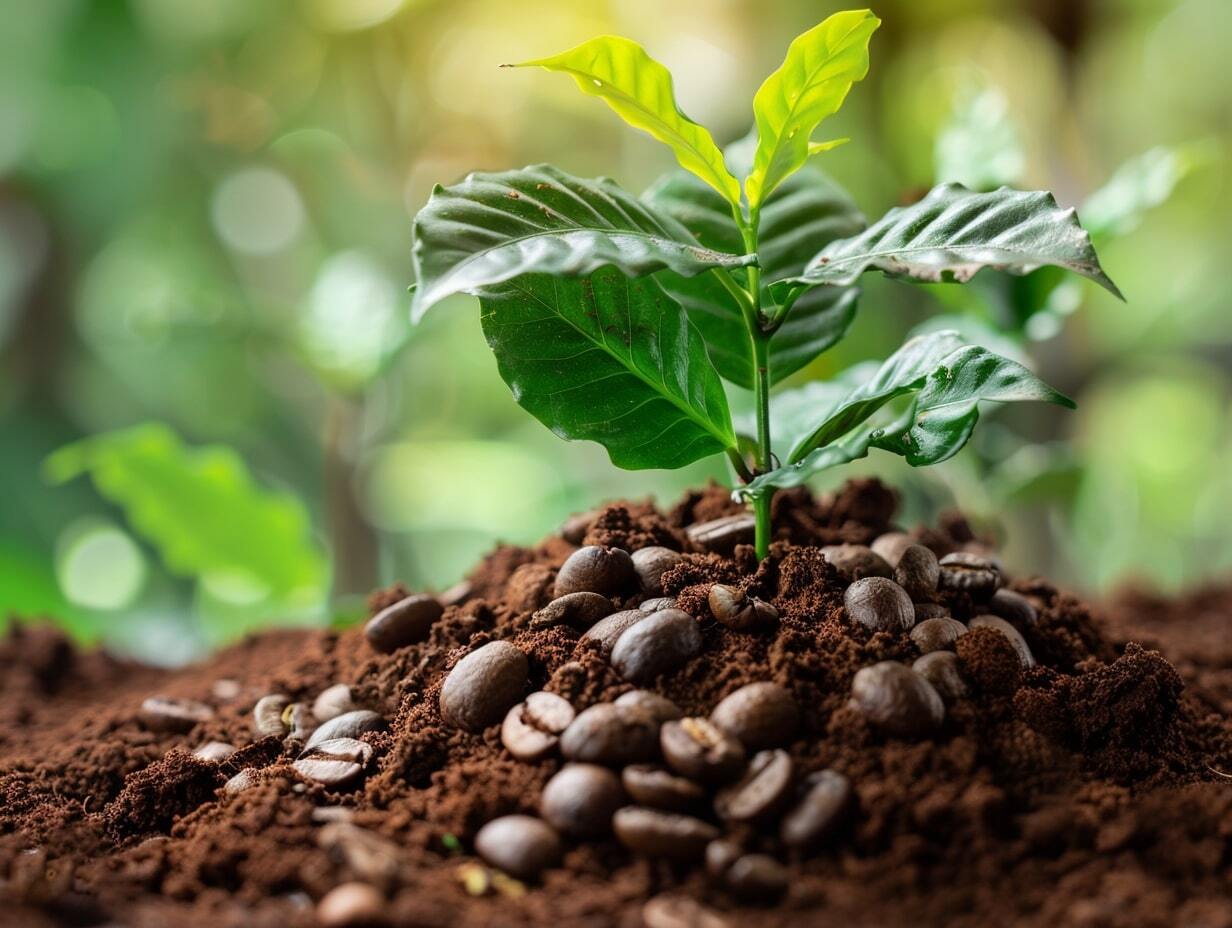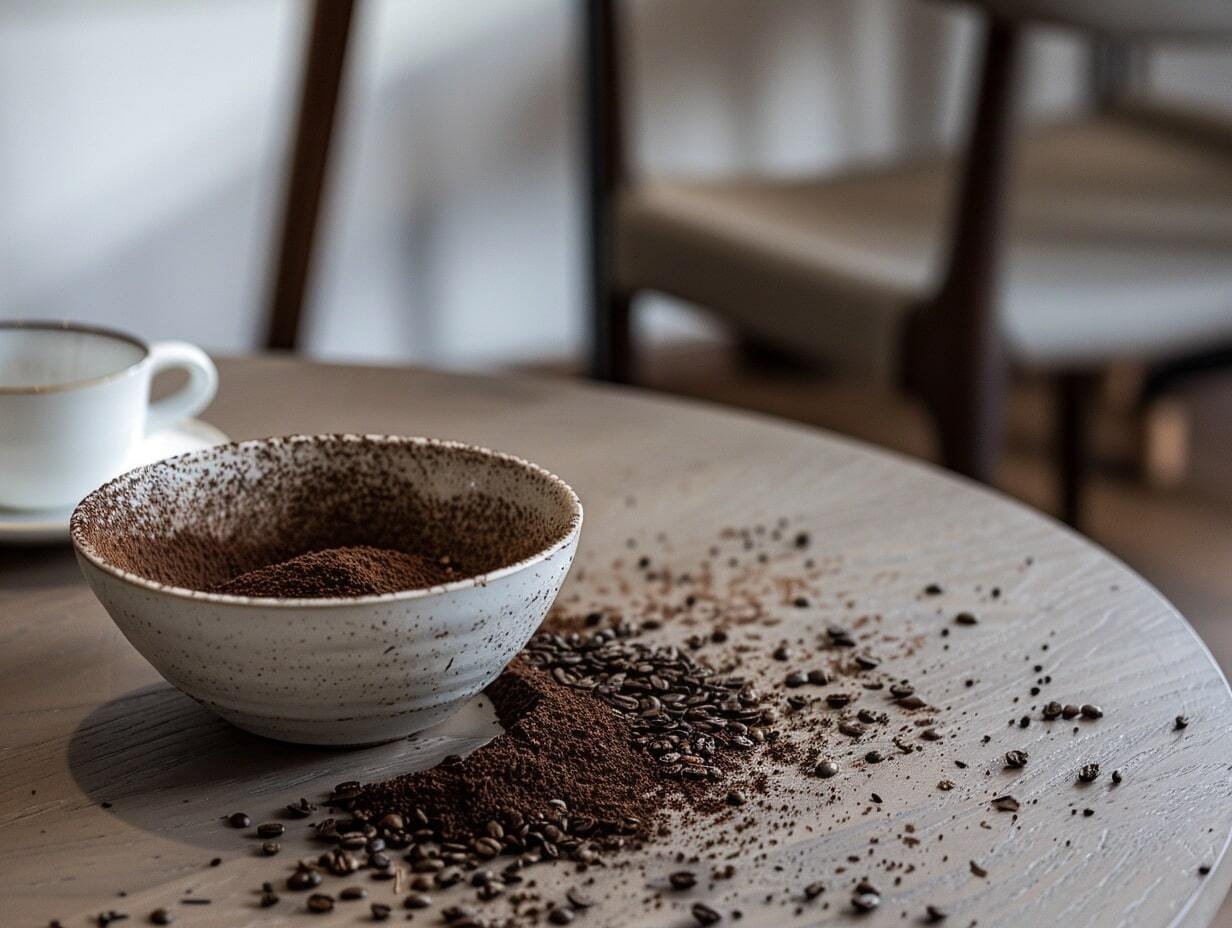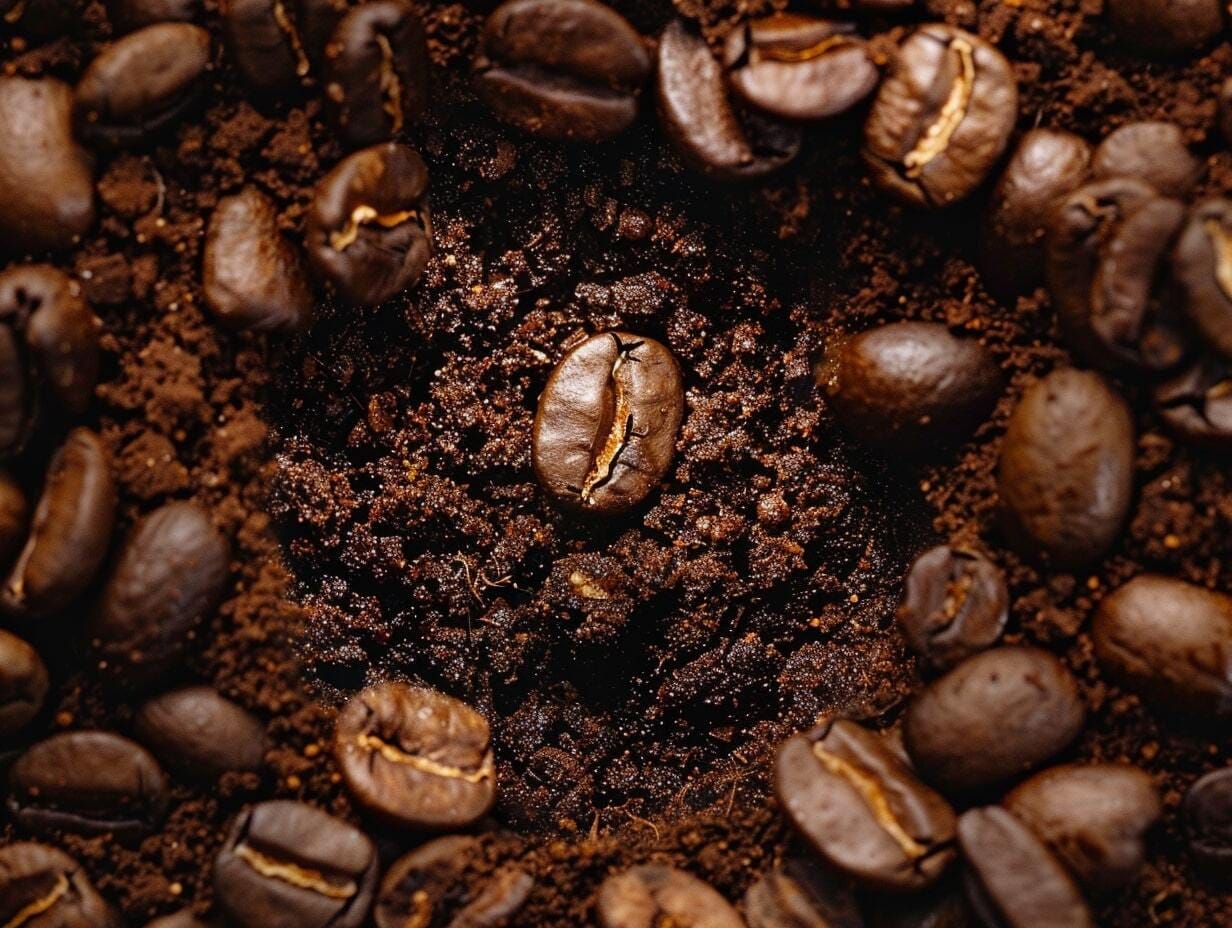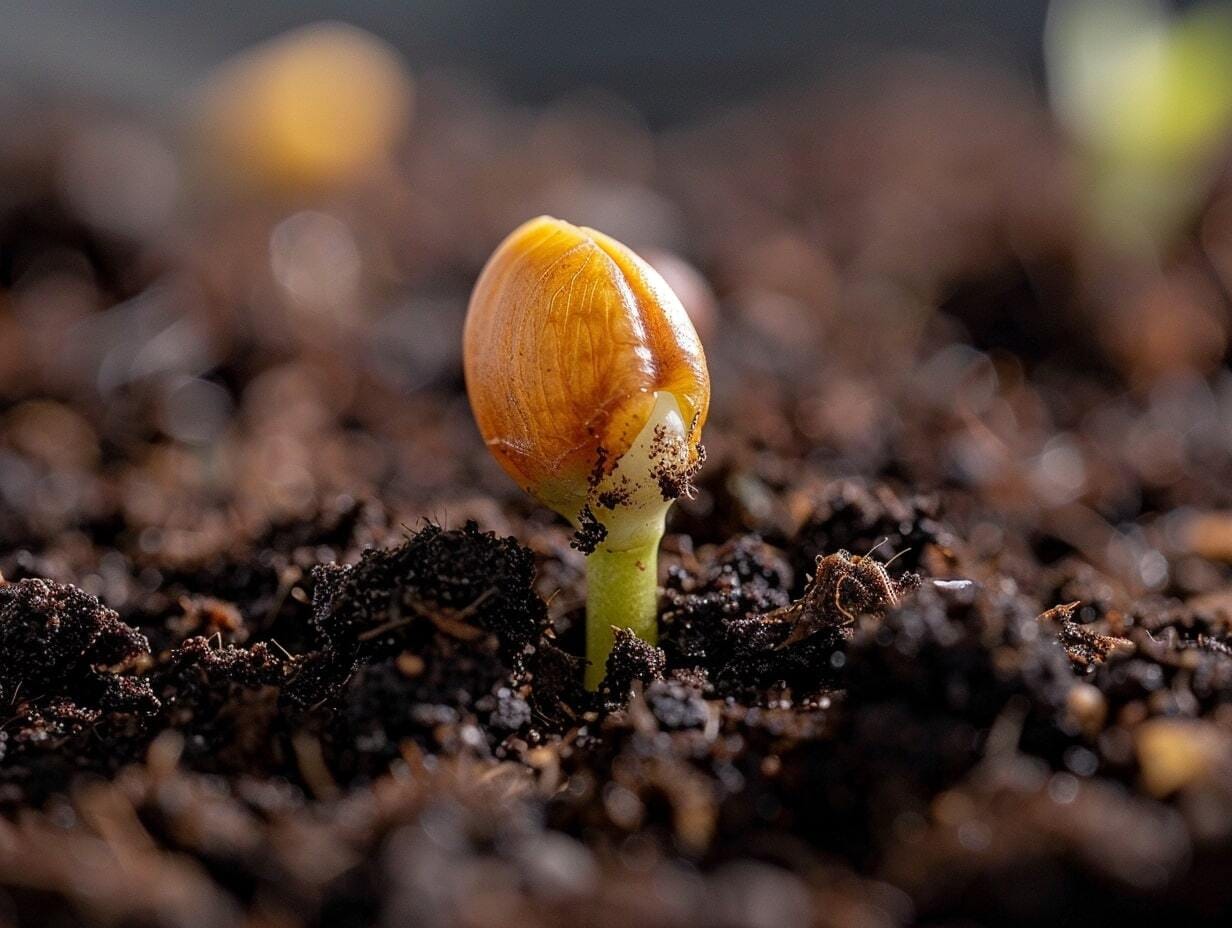When you buy products via links on our website, we might receive an affiliate commission. Learn more
Stop Throwing Away Coffee Grounds! Here’s Why They’re Gold for Your Garden

Coffee is more than just your morning energizer. Beyond its role in helping millions start their day, coffee grounds, often discarded without a second thought, possess remarkable benefits for gardeners.
Rich in nutrients essential for plant growth, used coffee grounds are a sustainable, cost-effective resource for enhancing soil health and more.
In this blog, we’ll uncover the hidden virtues of coffee grounds, transforming what might seem like waste into a precious commodity for your garden. Explore why integrating coffee grounds into your gardening routine is not only environmentally friendly but also a strategic boost for plant vitality.
Coffee Grounds Provide a Host of Essential Nutrients

Coffee grounds are a treasure trove of essential nutrients including nitrogen, potassium, and phosphorus, which are vital for plant growth. Sprinkling used coffee grounds around your plants can help release these nutrients into the soil, enhancing its overall fertility.
Unlike synthetic fertilizers, coffee grounds release these nutrients slowly, ensuring a gradual supply that supports healthy plant growth without the risk of nutrient burn.
Additionally, coffee grounds contain small amounts of other essential minerals like magnesium, calcium, and iron.
These trace elements are crucial for various physiological processes in plants, such as chlorophyll production and enzyme activation.
By incorporating coffee grounds into your soil, you are providing a well-rounded nutritional boost that supports the overall health and productivity of your plants.
Coffee Grounds Naturally Deter Pests
The natural acidity and strong scent of coffee grounds make them an excellent deterrent for pests. Slugs, snails, and ants, which can be a nuisance in many gardens, find the smell of coffee grounds unattractive.
By scattering grounds around your plants, you can create an effective barrier that keeps these pests at bay, protecting your garden without the need for harsh chemical pesticides.
Coffee grounds are also known to repel cats, which can be a problem for some gardeners.
If you have issues with neighborhood cats digging in your garden beds, sprinkling coffee grounds around the affected areas can help deter them. This natural repellent is not only safe for your plants but also environmentally friendly.
Coffee Grounds Help Improve Soil Structure

Coffee grounds have a unique texture that helps improve soil structure. When mixed into the soil, they enhance its aeration, thereby facilitating better root penetration.
This improved soil structure allows for more efficient water drainage and air circulation, critical components for healthy root development and plant growth.
Additionally, coffee grounds can help in binding sandy soils and loosening clay soils, making them more workable and productive. In addition to improving soil texture, coffee grounds also contribute organic matter, which is crucial for soil health.
Organic matter helps to retain moisture, improve soil fertility, and support a thriving ecosystem of beneficial microorganisms. By regularly adding coffee grounds to your soil, you are building a rich, fertile environment that promotes robust plant growth.
Coffee Grounds Encourage Beneficial Microorganisms
The organic matter in coffee grounds is an excellent food source for beneficial microorganisms in the soil.
These microorganisms play a crucial role in breaking down organic matter, which in turn enriches the soil and helps in nutrient absorption by plants.
By adding coffee grounds to your compost or directly into the soil, you can boost the microbial life, which is essential for a healthy, vibrant garden.
Fungi and bacteria are particularly fond of coffee grounds, as they provide the necessary carbon and nitrogen for their growth.
These microorganisms are instrumental in decomposing organic matter and converting it into nutrients that plants can easily absorb. A thriving microbial community also helps to suppress soil-borne diseases and pests, contributing to the overall health of your garden.
Coffee Grounds Are Sustainable Composting Ingredients
Coffee grounds are a fantastic addition to your compost bin. They are classified as “green” compost material, which means they are rich in nitrogen – a crucial element needed to balance the carbon-rich materials in compost.
The grounds help to increase the temperature of the compost pile, speeding up the decomposition process and resulting in rich, fertile compost that can be used to enhance your garden soil.
Incorporating coffee grounds into your compost not only speeds up the decomposition process but also adds valuable nutrients to the finished product.
When combined with other compost materials like kitchen scraps, grass clippings, and leaves, coffee grounds contribute to a well-balanced compost that enhances soil fertility and structure.
Coffee Grounds Reduce the Need for Frequent Watering
Coffee grounds can help soil retain water, reducing the need for frequent watering. This is particularly beneficial during dry spells or for gardeners in regions with limited water resources.
The grounds absorb and hold onto moisture, releasing it slowly over time, which ensures that plants have a steady supply of water, enhancing growth and reducing water stress.
Moreover, the fine texture of coffee grounds helps to improve the soil’s water-holding capacity without causing compaction. This is especially advantageous for container gardens and raised beds, where soil moisture retention can be challenging.
By using coffee grounds, you create a more resilient garden that requires less frequent watering and is better equipped to withstand drought conditions.
Coffee Grounds Are Cost-Effective and Eco-Friendly
Using coffee grounds in your garden is an eco-friendly practice that reduces waste and minimizes your carbon footprint.
Instead of ending up in landfills, where they can contribute to methane production, coffee grounds can be repurposed to benefit your garden.
Additionally, this practice is cost-effective, as it reduces the need to purchase commercial soil amendments and fertilizers. By reusing coffee grounds, you are participating in a sustainable gardening practice that supports a circular economy.
This not only benefits your garden but also helps to reduce the overall environmental impact of coffee consumption. Many coffee shops are happy to give away used coffee grounds for free, making it an accessible and economical resource for gardeners.
Coffee Grounds Enhance Seed Germination

Coffee grounds can also be beneficial during the seed germination phase. Mixing a small amount of coffee grounds into the seed starting mix can provide an initial nutrient boost for seedlings.
The nitrogen content in coffee grounds supports healthy root and leaf development, giving young plants a strong start.
However, it’s important to use coffee grounds sparingly in seed starting mixes, as excessive amounts can lead to fungal growth or overly acidic conditions.
A light dusting of coffee grounds, combined with a balanced seed starting mix, can create an optimal environment for seedling growth.
